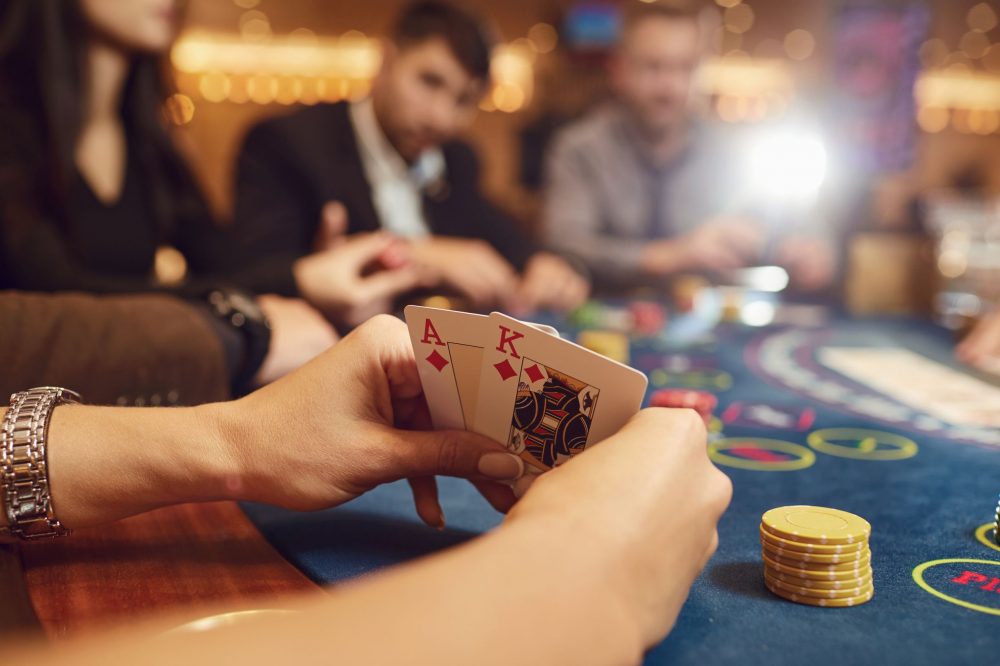To play poker, a player must first learn the required skills to win at the tables.
Some players only win a couple of hands through luck, but the long-term goal is to sustain your winning streak and have the ability to bounce back once you lose.
You need to have a lot of discipline, know how to control bankrolls, reading skills and the ability to adapt quickly to the environment.
There are, of course, other tricks in the business, but these are the six key ingredients to up your poker skills.
#1 Math Skills
A great poker player knows about the overall probability. For instance, they know that when keeping a pocket pair you have around 1 in 8.5 chance of reaching a set and 1 in 3 chances of finishing a flopped Flush draw.
Great players know that outs are significant. The Outs are literally the number of cards that will boost your hand. Start counting your outs, multiply them by two then add one, which is just about the percentage you will win.
Effective poker players can easily find out the pot odds. It is useless to recognize outs unless it has been converted into a measured, rational betting.
The basic understanding of math skills is very critical in becoming a great poker player.
Anyone who isn’t recognizing these basic math principles should not yet play for the real money.
#2 Discipline and Patience
A good poker player is generally disciplined by the ability to not only wait for good hands but also the ability to control good hands.
To excel in poker, you have to plan your bankroll and know what mistakes to prevent and when to stop. You should understand when to pause and manage your feelings through good and bad plays.
A strong player knows when a hand can be folded, and when it can be moved. A player would most probably reduce their losses over a long period through discipline.
A player with discipline knows he’s not perfect. He owns his mistakes and learns from those.
#3 Ability to Read People
The ability to read people, not just the hands, but the gestures, body language, and expressions at the table, is one of the important factors in any game.
It is recommended during live games that you will not touch your cards, despite how eager you may be to check at what you have. Use this time instead to see the opponents’ reactions.
Did somebody flicker their eyes? Have you seen somebody smile? These would be discreet yet significant signs that give you more perspective on what cards your opponents are holding.
After a couple of rounds, you will be in a position to place your rivals on a range of hands to give you a clearer sense of whether you are behind or ahead from them.
#4 Strong Psychological Skills
A decent poker player is not an egoist.
Once a Poker pro joins a poker room, he still knows how to deal with his opponents. He wants to know what they understand and why they come to their conclusions.
Effective poker players are familiar with the role of psychology in a no-limit game rather than in a limit poker game.
Sometimes, limit games become math wars, while no-limit poker games have a strong psychological dimension. Therefore, poker tells are far more relevant in no-limit games.
#5 Risk versus Reward
If the payoff is high value, but only if the anticipated return is more than the risk, poker players are prepared to take a big chance. Above all, they greatly understand the risk versus the reward aspects of the game.
Expert poker players know how much bank they have to play and how much money they need to cover other living expenses.
Successful poker players realize that with their total bankroll they need to be risk-averse.
#6 Managing Bankroll
The management of the bankroll is crucial. You can never control your cash flow if you can’t manage your money well, regardless of how well you do your skills. This means that a player must always play within his or her means.
The poker player is highly recommended to play a total of 300 x the BB in a particular stage. It helps you to at least overcome losses.










